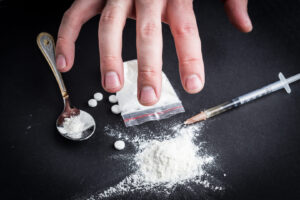Why Relapsing Isn’t Always Bad

“Don’t be afraid of making mistakes. Mistakes are valuable experiences and great teachers.” -unknown
Making a change in your life is difficult, even a positive change. Whether it’s exercising daily, cutting out sugar, going to bed early, or recovering from addiction, we’ve all been there. Changing a habit that we’ve held on to months or years is not something you can plan to do overnight.
The change I want to focus this blog on is overcoming addiction, but the same things apply to most changes you would like to make in your life. According to What You Can Learn from Relapse By Nina Emkin, around 70% of recovering addicts relapse. When you hear this statistic, you may ask yourself whether the odds are too stacked against you and whether it’s even worth it to try. That’s why the goal of this blog is to show you how relapse doesn’t have to be a completely negative thing.
Now, hopefully, you are lucky and you are in the 30% of people who have never relapsed. However, if you not, do not worry. Relapse is NOT the end of your recovery.
One of the greatest things you can learn from relapsing is recognizing your triggers. Why is identifying and recognizing your triggers important? Well, just like in many cases, knowledge is power. If you are able to identify certain places, people, or feelings that make you feel like using, you can use that to your advantage. You may start to avoid certain places that you know will highly trigger you or you will know beforehand you will be triggered and can prepare before you are in that situation. The more aware you become of your triggers, the more likely you can prevent a relapse. For example, if you know when you have had a stressful day you are more tempted to use, you can prepare yourself, by saying, “I’m very vulnerable today, and I know I am more likely to relapse in this state, so I am going to take precautions.”
You may ask yourself what kind of precautions you can utilize. Ultimately, you will have to find something that works for you. However, here are some ideas to get you to start thinking:
- Call a friend. Even if you don’t want to talk about being triggered or thoughts about using, calling someone can get you off of your current mind path.
- Get physical exercise. Go on a walk, go running, go lift weights. This will distract you and get you out of your mind and into your body.
- Blast your music and sing along.
- Think of things you have to do that day, things you need to shop for, or TV shows you need to catch up on. Anything that will help you focus your mind elsewhere.
- Paint. Even if you don’t have any artist capabilities, expressing emotion through painting can be soothing.
Another thing you can learn from relapse is what works and what doesn’t. As an addict, you have used your addiction to cope. This means you need to find new coping skills and your default is going to be your addiction. Everyone copes in different ways and you need to find one that works for you. If you keep trying a coping skill and it doesn’t seem to work and you relapse, you can say “well this coping skill obviously doesn’t work, let’s try another.”
The most important thing to remember is relapsing is NOT the end. If you treat it as a learning experience and the stepping stone to a more successful recovery, you will have a higher chance of reaching complete recovery. Feeling guilt and shame will happen when you relapse, but if you focus on these emotions instead of seeing relapse as a learning experience, you are more likely to continue in addictive behaviors.
Recovery is like any other change. Just like people who may be trying to exercise daily, there may be days you fall short. This doesn’t mean you are a bad person, it just means you are human. However, if you are able to push through and use your relapse to your advantage, you will become stronger.

